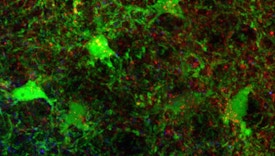
Ray W. Turner received a Ph.D. in neuroscience at the University of British Columbia Vancouver in 1985 and completed two postdoctoral training periods at the National Institutes of Health in Bethesda, MD, and at the University of Ottawa, Canada. He became an assistant professor at the University of Calgary, Alberta, Canada in 1991 and is now a professor in the Hotchkiss Brain Institute in the Cumming School of Medicine at the University of Calgary.
The Turner lab focuses on electrophysiology and biophysics of ion channels in cerebellum and hippocampal regions using rodent in vitro models to assess the basis of circuit function underlying behaviors. The lab uses techniques that range from molecular biology and protein biochemistry through imaging to assess the molecular nature of interactions between ion channels that are assessed in terms of how they govern cell excitability and synaptic plasticity in in vitro slice preparations or dissociated cell cultures.
Work has focused on a new ion channel complex formed between Cav3 calcium (T-type) and Kv4 potassium (A-type) channels expressed in granule cells of cerebellum. Recent work shows that the Cav3-Kv4 complex is central to long-term potentiation (LTP) of mossy fiber input to granule cells. Their work now establishes that FMRP is a central component of the Cav3-Kv4 complex that modulates its properties and is necessary for LTP. Turner’s SFARI-funded work will examine the ability to restore a loss of LTP in Fmrp1 knockout mice and reduce aberrant behaviors in this model of fragile X syndrome using a combination of in vitro recordings and behavioral analyses.
